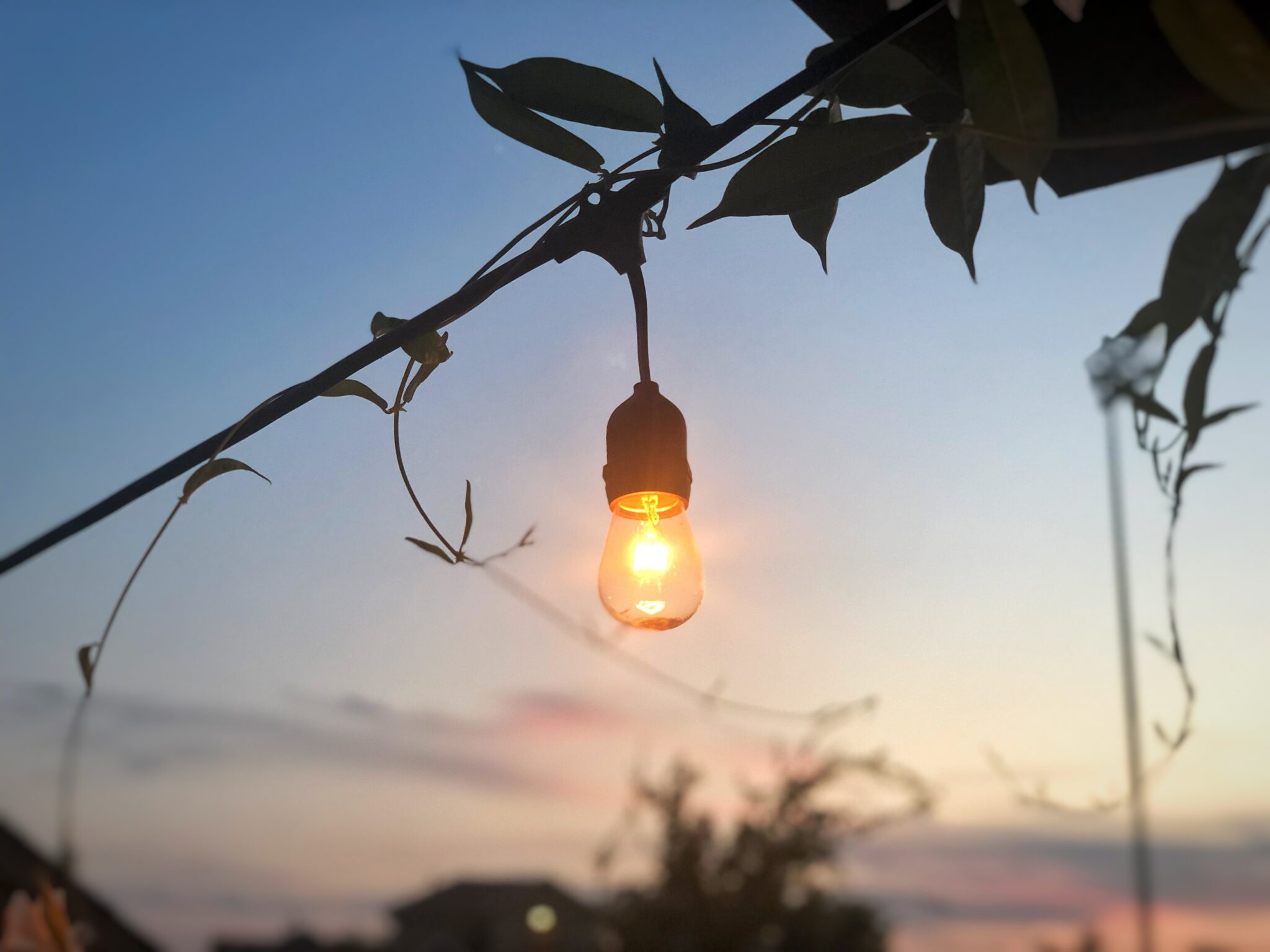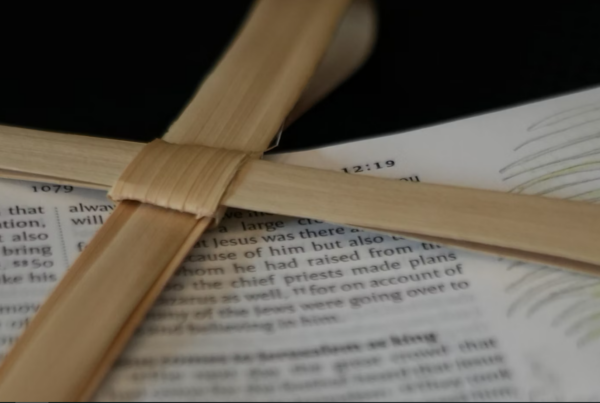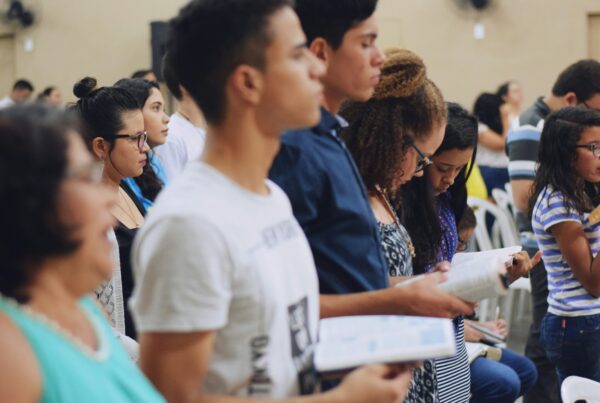What real leadership entails is that you gather people together in a way that allows them to lean into their own gifting and to have a vision for their own lives that will build into a larger vision for your ministry or wherever you’re practicing your calling for the Lord. I think the second thing about leadership is that leadership has to come in a different package now; we can no longer lead out of memory, but we have to lead out of imagination. There are tangible consequences for not loving our communities well and not really being imaginative as leaders.
This material was originally recorded as part of the Renovations Project. It has been lightly edited and condensed for clarity.
Redefining leadership
We have to believe that the world and society and even the church do not have to be what they have always been. That is not a throwing away of tradition, nor is it a throwing away of major tenants of the faith. It is saying that as we hold on to the traditions of the faith, we also have to be innovators in our places and in our context. This means that we have to be people who are not only looking back for how we lead. But we have to be forging a new way for what leadership will look like in our context now and in the future.
So when I talk about leadership being about imagination, I’m talking about what does it look like for our churches and our organizations to be thinking about the church in a different way? What is the church’s responsibility when it comes to economics? What is the church’s responsibility when it comes to community development? What is the church’s responsibility when we’re talking about education, financial literacy, or civic responsibility? The church can have such great impact in the world if we could get outside of just what the church has always been. If we look back, we’ll see that the church has found ways to be engaged in that for years, but what it will look like now, and in future generations will be completely different than what it looked like 50, 60, or 100 years ago.
Imagination is the key now; it is imagining a church that looks different. Who would have thought that in 2020, you would have had to have church online? Yet people who were innovating, people who were already imagining what it looked like for church to engage people virtually were already thinking and imagining what church could look like moving forward. Leadership takes that imagination, and it takes that stepping outside of the box.
Being innovative with the church building
It takes trying to be innovative and trying to own the fact that unless we do things differently, we cannot expect different results. So local pastors, local churches, how are you using your spaces? That’s low-level, low hanging fruit: how do you use your spaces? Are they Sunday/Wednesday spaces? Or what can be re-imagined about your space on Monday, Tuesday, Wednesday, Thursday, and Friday?
On the front cover of my book Church Forsaken: Practicing Presence in Neglected Neighborhoods, I very explicitly put a church building, storefront church building with gates and bars on the front, locked up with a “Sorry, we’re closed” sign on the front because I wanted people to get a visual of what church looks like to the average person all week long. While we have in our minds, “Oh, we’re so engaged in our communities. We love our neighbors; the doors of the church are always open.” We say those things and physically people walk past our buildings, especially in neighborhoods like mine, to see bars, gates, and locks on them all week long until we come back around on Sunday.
How can we reimagine our spaces? There was a person in my community named Aisha Butler, who’s now the president of our resident association, the Resident Association of Greater Englewood (R.A.G.E.). The first time I met her, she was doing a blog because the city of Chicago was closing down public schools because they were underutilized. There were not enough students in the schools for them to run efficiently, so they needed to combine schools thereby closing down some schools. It was very upsetting because all the schools that were being closed were in the neglected neighborhoods that I’m talking about. Aisha wrote a blog saying, “I don’t understand why we’re closing schools, and if we’re closing schools for underutilization, I’m driving down the street and every other storefront is a boarded up, chained, closed church, and I’m thinking, ‘We should shut down some of these churches for underutilization because they’re more underutilized than the schools.’”
Related: How to revitalize your church by embracing innovation
Gathering together in community
I realized that if that’s the way our community sees us, then we’re actually more of a detriment to our neighborhoods than we are a benefit. So Aisha and I started getting into what were the tangible consequences of locked churches all week long? Number one, churches are not-for-profit organizations, and, in the state of Illinois at least, they pay no property taxes because they’re nonprofits, which means that they don’t give any economic stimulus to that neighborhood. If your church is not connected to the community, if the people who go to your church don’t live in the neighborhood, if all you do is come there and use up the space, and then lock it up all week long, you are only taking from that community.
Our church started a cafe about eight years ago called the Kusanya Café. “Kusanya” is a Swahili word that means to gather together. What we wanted to do was create a space for our neighborhood to gather. It has become a central location in a neighborhood that’s almost 20 square miles that had no sit-down restaurants. Because of that, when you open up a gathering space where it doesn’t matter your economic background, doesn’t matter your racial background, it doesn’t matter how long you’ve lived in the neighborhood, this is our gathering place. It becomes a pretty hot spot, but our mindset had to be, “How can this not be Canaan’s spot? This needs to be the neighborhood’s.” So it’s not Kusanya Café, a ministry of Canaan Community Church. Kusanya Café is its own entity, standalone, and on the front door, it says, “resident-owned, resident-operated, and resident-sustained.” If you walk in our coffee shop today and ask who owns it, we will say that you do, because without you, it would close; you are sustaining it, you own it, you help us keep it alive.
Related: How a church can love its neighborhood and partner with its community
That has completely translated into that place becoming sacred, so now we’ve created a second sacred space, not just our church building. When I walk through the doors of Kusanya Café, I worship God in those walls, because of how long it took us to do it and knowing that it’s a labor of love. I worship God to the hip hop music that’s blasting in our café; I worship God at the table, drinking a latte. I worship God because that place is not just a café, it is holy ground, where God showed himself strong and created a space where our people can gather together. So many people have come to know Jesus sitting in the coffee shop because we see it as sacred, and we lead out of imagination, not out of memory.

Renew your church’s imagination for ministry
The Renovations Project helps leaders learn, together.
- Thought-provoking masterclasses
- Personalized coaching
- Immersive visit to a ministry innovation hub
- Ministry innovation grants up to $5,000
Disclaimer: Some of the links on this page are affiliate links, meaning that, at no cost to you, we will earn a commission if you click through and make a purchase. However, we were not paid to review or recommend any of the links on this page.

Jonathan Brooks
Jonathan “Pastah J” Brooks is a pastor, speaker, writer, artist, and community activist. A lifelong resident of the Chicago area, he is a firm believer in investing in your local community. After serving as senior pastor of Canaan Community Church in the West Englewood neighborhood, he is now co-lead pastor at Lawndale Christian Community Church in the North Lawndale Neighborhood. He participated in listening sessions about innovation hosted by the Reformed Church in America.



